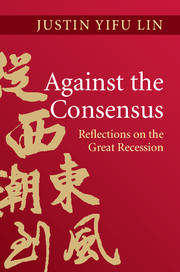Book contents
- Frontmatter
- Contents
- List of figures
- List of tables
- List of boxes
- Preface
- Overview
- Part I What Caused the 2008–9 Global Crisis?
- Part II A Win-Win Path to Recovery
- Part III How Poor Countries Can Catch Up: Flying Geese and Leading Dragons
- Part IV Toward a Brave New World Monetary System
- 12 The evolution of the international monetary system
- 13 Emerging pressures and policy challenges
- 14 (In)stability of the emerging multiple reserve currency system
- 15 The thinking behind the main reform proposals
- 16 Costs and benefits of major reform proposals
- 17 A proposal for a new global reserve currency: paper gold (“p-gold”)
- 18 Why it still matters
- References
- Index
16 - Costs and benefits of major reform proposals
from Part IV - Toward a Brave New World Monetary System
Published online by Cambridge University Press: 05 June 2013
- Frontmatter
- Contents
- List of figures
- List of tables
- List of boxes
- Preface
- Overview
- Part I What Caused the 2008–9 Global Crisis?
- Part II A Win-Win Path to Recovery
- Part III How Poor Countries Can Catch Up: Flying Geese and Leading Dragons
- Part IV Toward a Brave New World Monetary System
- 12 The evolution of the international monetary system
- 13 Emerging pressures and policy challenges
- 14 (In)stability of the emerging multiple reserve currency system
- 15 The thinking behind the main reform proposals
- 16 Costs and benefits of major reform proposals
- 17 A proposal for a new global reserve currency: paper gold (“p-gold”)
- 18 Why it still matters
- References
- Index
Summary
This chapter reviews some of the major proposals for reform of the international monetary system and provides a rough assessment of their costs and benefits. The criteria for assessment should include efficiency, stability (incentives to correct external imbalances), equity, and feasibility, but quantifying each criterion would be extremely difficult – an entire research agenda in its own right. The chapter considers three reform proposals: a bigger and better IMF, a global central bank with international currency, and international policy coordination.
A bigger and better International Monetary Fund
There have been many proposals to reform the IMF with the objective of improving the performance of the international monetary system. The discussion here focuses on funding, instruments, surveillance, and governance.
Funding
The lending capacity of the IMF as a lender of last resort for sovereign countries has declined as a share of global GDP. Establishing automatic quota increases, perhaps combined with a one-off initial increase, could automatically adjust the size of the IMF to the size of the rapidly growing international economy. One proposal calls for automatic quota increases that, on average, equal average annual real global GDP growth but with a countercyclical wrinkle: countries would contribute more during high growth years and less during subpar growth years.
- Type
- Chapter
- Information
- Against the ConsensusReflections on the Great Recession, pp. 191 - 198Publisher: Cambridge University PressPrint publication year: 2013



